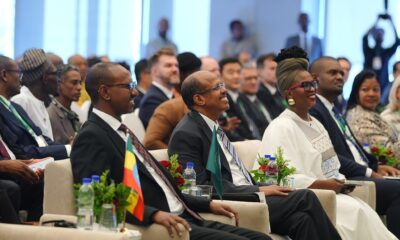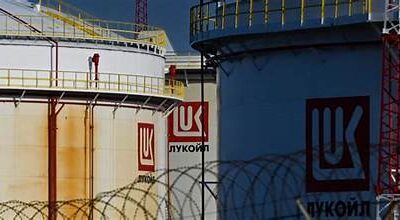National Issues
Justice For Somtochukwu: Time For Nigeria Police To Adopt American Pace -By Isaac Asabor
What is lacking is not ability but will. Nigeria must decide whether it values human life enough to act with urgency. For Somtochukwu Maduagwu, for his grieving family, for the media industry, and for a nation tired of burying its best and brightest, the time for excuses is over.

The murder of Somtochukwu Maduagwu, a brilliant young journalist with Arise News, is not just a personal tragedy for her family, colleagues, and the Nigerian media community. It is a grim reminder of Nigeria’s worsening culture of impunity, where lives are snuffed out, investigations stall, and killers roam free. Each time we bury one more victim, we bury another ounce of faith in the Nigerian justice system.
But this must not be allowed to happen again. Somtochukwu’s killers must be hunted down with urgency, precision, and determination. Nigeria’s police and other security agencies must take a cue from how similar cases are handled in America, where murder is treated as an affront to the state and justice is pursued with breathtaking speed.
On September 11, 2025, conservative activist Charlie Kirk was gunned down by a sniper while speaking at Utah Valley University. The killing sent shockwaves across the United States, sparking immediate responses from law enforcement. Within 33 hours, the suspect, Tyler Robinson, was arrested following an intense manhunt. Investigators tracked him through forensic evidence, bullet casings, digital footprints, and tips from family members.
What stands out in this case is not just the speed but the transparency. American authorities kept the public informed, reassured the community, and demonstrated that no killer could escape justice, no matter how bold the act. The swiftness in bringing Robinson into custody gave Kirk’s supporters, and indeed Americans at large, confidence that the system works.
Without any iota of exaggeration, America’s consistency in swiftly solving high-profile murder cases is worth studying. In 2020, the killing of George Floyd saw Officer Derek Chauvin arrested and charged within four days, sending a strong signal that accountability would not be delayed. Similarly, in 2021, the disappearance of 22-year-old Gabby Petito prompted a rapid response as police, the FBI, and local law enforcement combined digital forensics, CCTV evidence, and eyewitness accounts to identify the prime suspect within days. The Boston Marathon bombing of 2013 also underscored the speed of U.S. investigations, as suspects were identified and captured in a coordinated manhunt just four days after the attack. Even more striking was the Charleston Church massacre of 2015, where gunman Dylann Roof was arrested in less than 24 hours after taking nine lives. Together, these cases highlight a system where urgency and coordination are treated as non-negotiable in the pursuit of justice.
Each of these cases underlines the same point: in America, speed is not an option but a duty. The first 24 to 72 hours are treated as decisive. Witnesses are interviewed, evidence preserved, digital and physical trails secured. This is precisely where Nigeria falls short.
In Nigeria, the familiar script after a killing goes like this: condolences from government officials, vague promises of “investigation,” endless silence, and finally, collective amnesia. We have seen it play out too many times.
From the assassination of Dele Giwa in 1986 through parcel bomb, to the unresolved killing of *Bagauda Kaltho in the 1990s, to the dozens of journalists, activists, and ordinary citizens killed in recent years, justice has been the exception, not the rule.
The phrase “unknown gunmen” has become the convenient blanket under which murderers hide. Files gather dust, evidence decays, and families are left with pain but no closure. This lethargy is not just incompetence; it is complicity by omission.
At this juncture, it may be tempting to ask, “Why is speed non-negotiable in Somtochukwu’s case. The answer to the foregoing cannot be farfetched as Somtochukwu’s killing is not just another statistic. It is a direct attack on the press, on truth, and on Nigeria’s claim to being a democratic society. If her killers go unpunished, it will embolden others who want to silence journalists.
Without a doubt in this case, speed is non-negotiable. This is as evidence fades. CCTV footage disappears. Witnesses forget. Every hour lost weakens the case. Nigerians must also see that the police can act with urgency, or public trust crumbles. Delay only fuels impunity, killers grow bolder when they think the system is slow or broken. And in this case, the stakes are even higher: media freedom is on the line. If justice is not swift, the message will be clear; journalists can be killed without consequence.
At this juncture, it is crucial to outline what Nigeria must do differently to restore public trust and ensure justice for Somtochukwu. Security agencies need to radically alter their approach, beginning with crime scene management, securing sites immediately, collecting every shred of physical and digital evidence, and involving forensic experts from the outset. Inter-agency collaboration is equally vital, with the police, DSS, forensic teams, and telecom companies required to share intelligence seamlessly. Transparency must also replace the tired “investigations are ongoing” mantra; Nigerians deserve regular, credible updates on progress. Political will is another non-negotiable factor, and the Inspector-General of Police must demonstrate that justice is not reserved for those with political connections. Finally, Nigeria should not hesitate to seek international technical support where necessary, drawing on the investigative capacity of countries with more advanced systems.
At this juncture, permit this writer as a member of Nigeria’s media family to appeal to the Media not to stay Silent. This is as Somtochukwu was one of our own. Her killing is not just a personal loss to her family and Arise News but a direct strike against the journalism profession. Therefore, Nigerian media must not let this case slip into obscurity.
In America, when journalists or activists are attacked, media pressure sustains investigations and compels government accountability. Nigerian journalists must do the same, consistently asking hard questions, tracking progress, and refusing to be pacified by empty words.
In fact, justice is not served by condolences. It is not served by promises. It is not served by silence. It is served by speed, transparency, and accountability.
If America can arrest suspects in hours, if it can identify perpetrators in days, if it can assure families and citizens that killers will be brought to justice without delay, why can Nigeria not do the same?
What is lacking is not ability but will. Nigeria must decide whether it values human life enough to act with urgency. For Somtochukwu Maduagwu, for his grieving family, for the media industry, and for a nation tired of burying its best and brightest, the time for excuses is over.
Justice delayed is justice denied. Nigeria must now adopt the American pace, and deliver justice for Somtochukwu.










